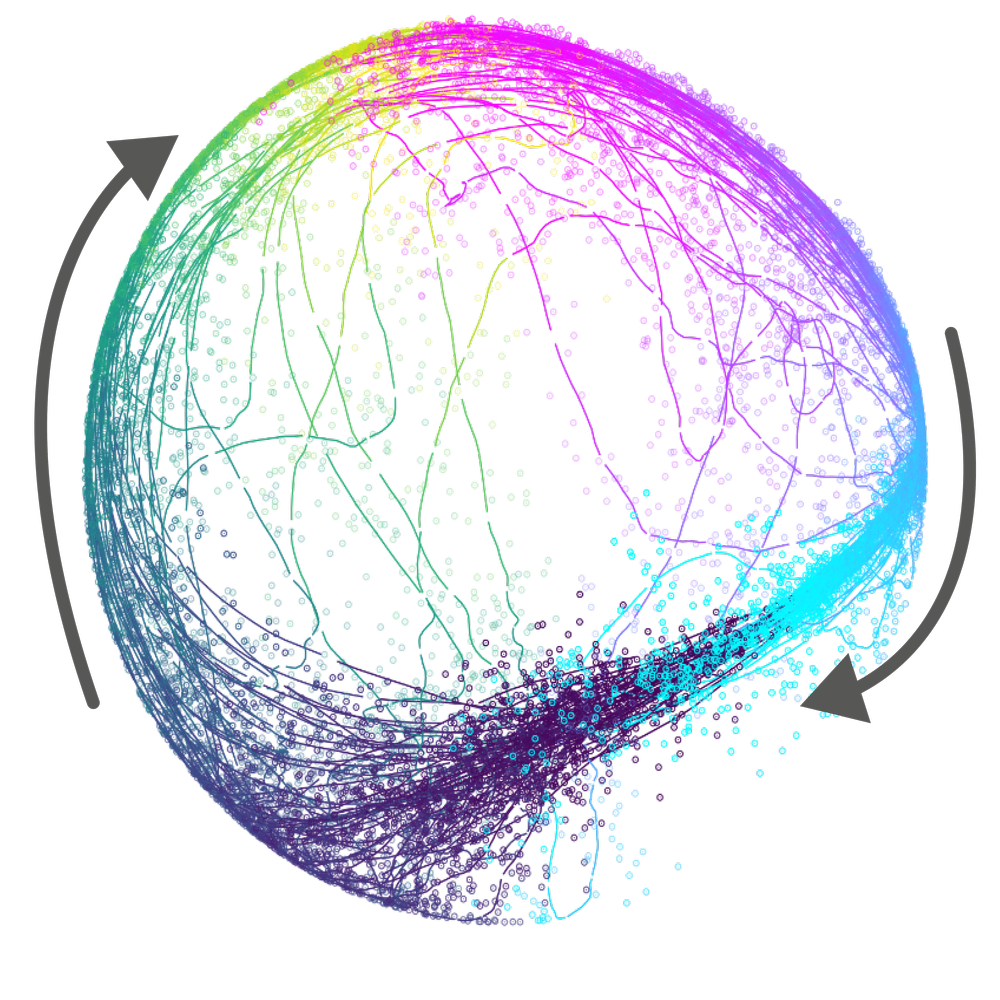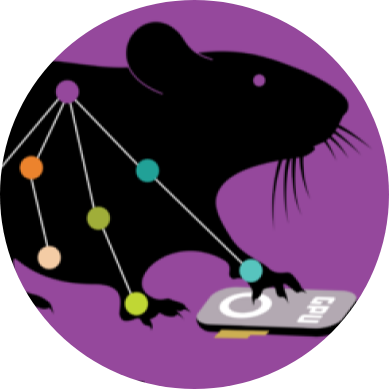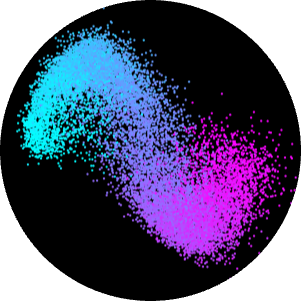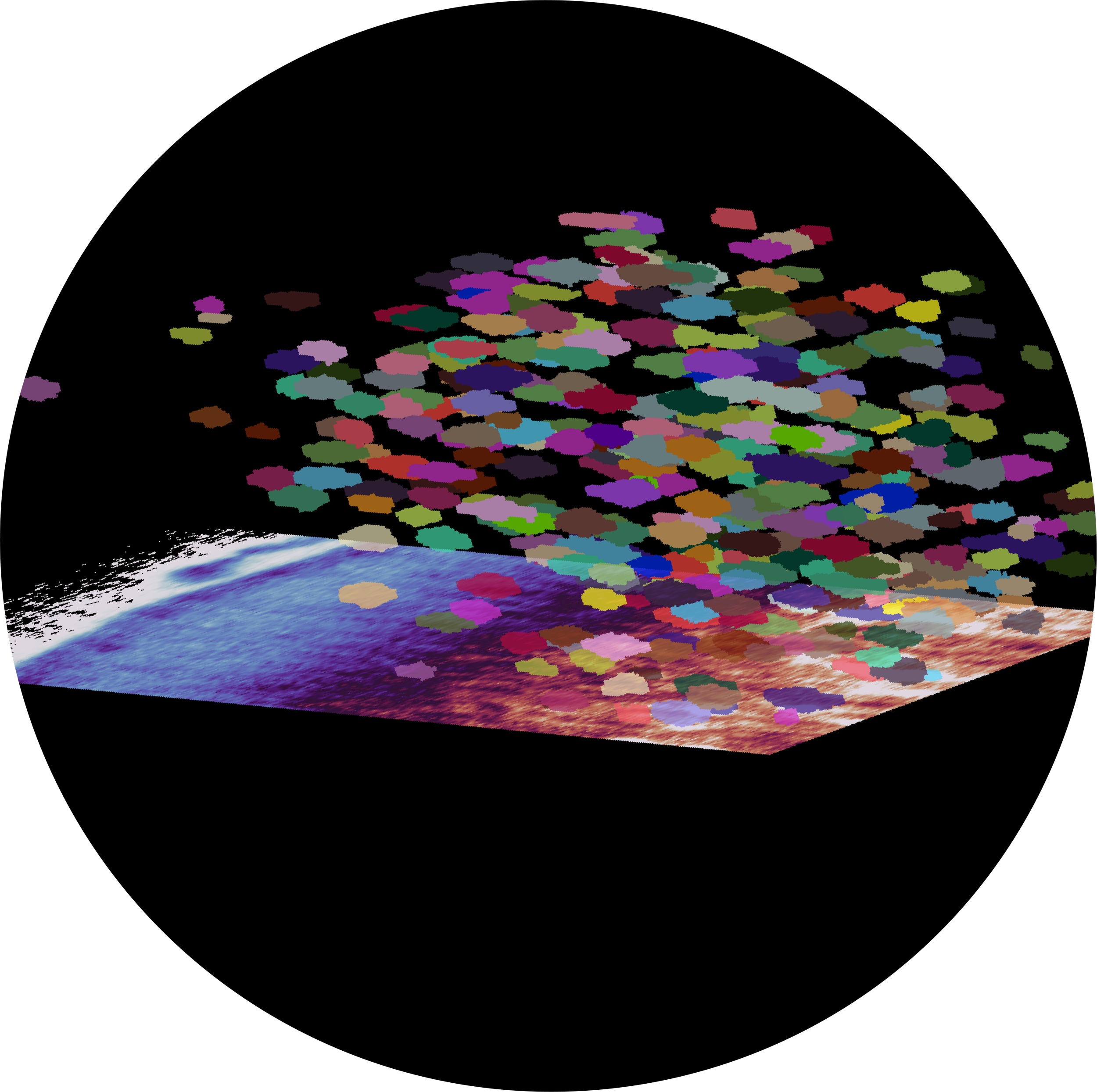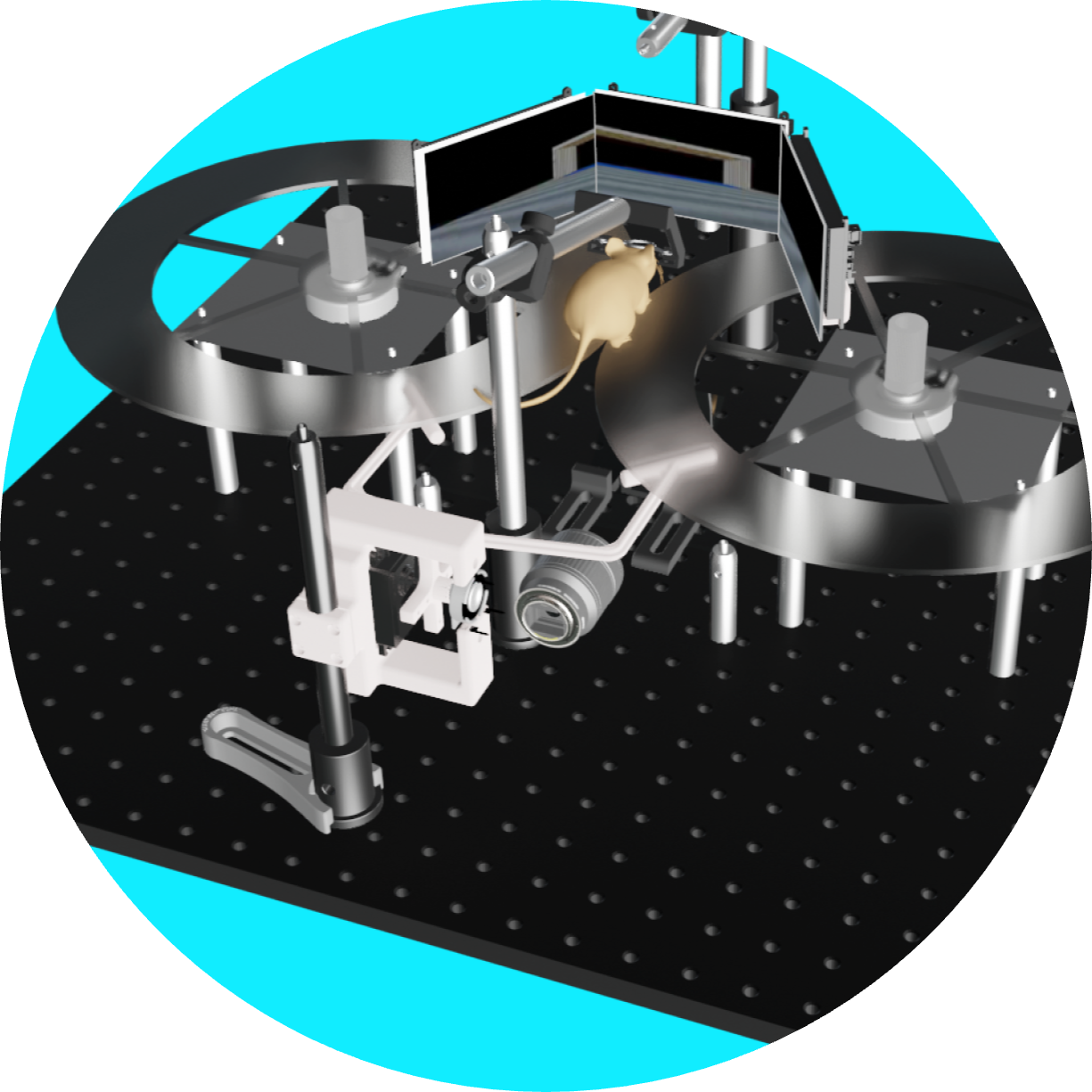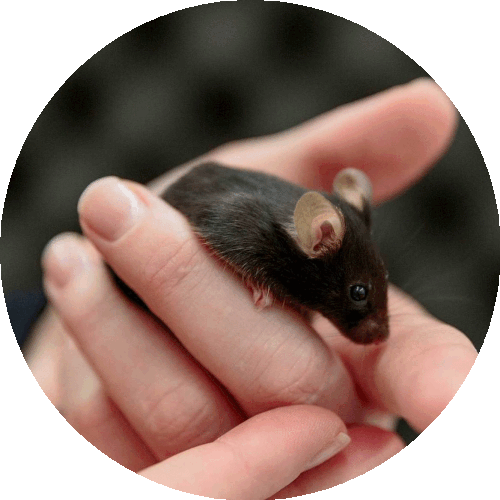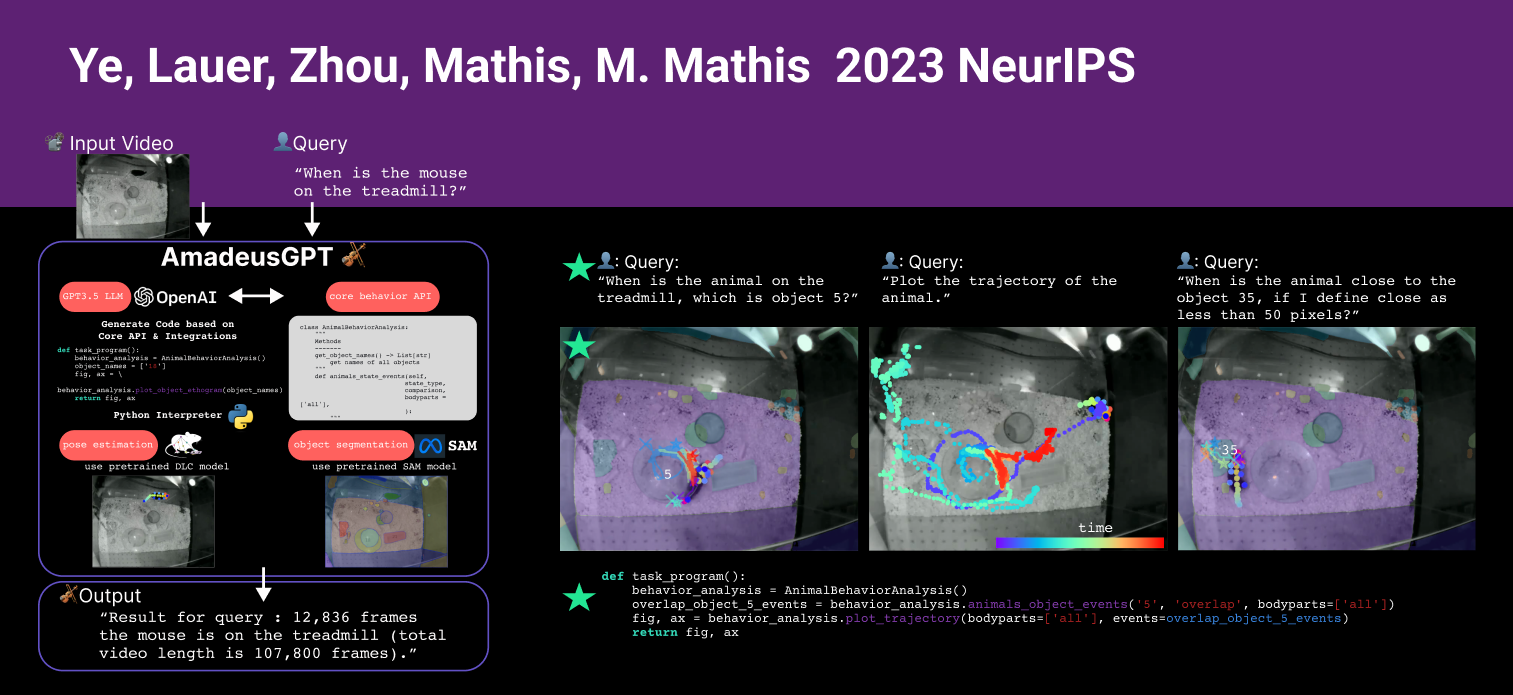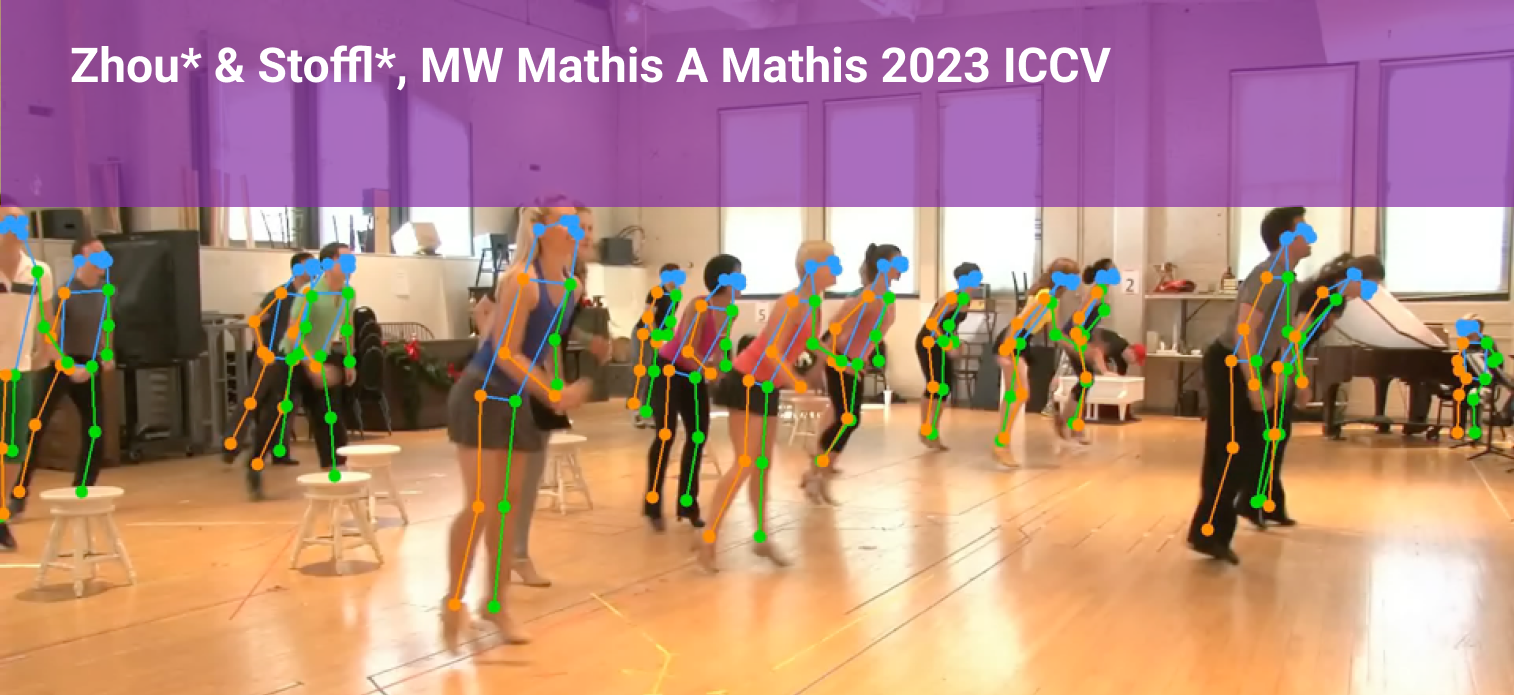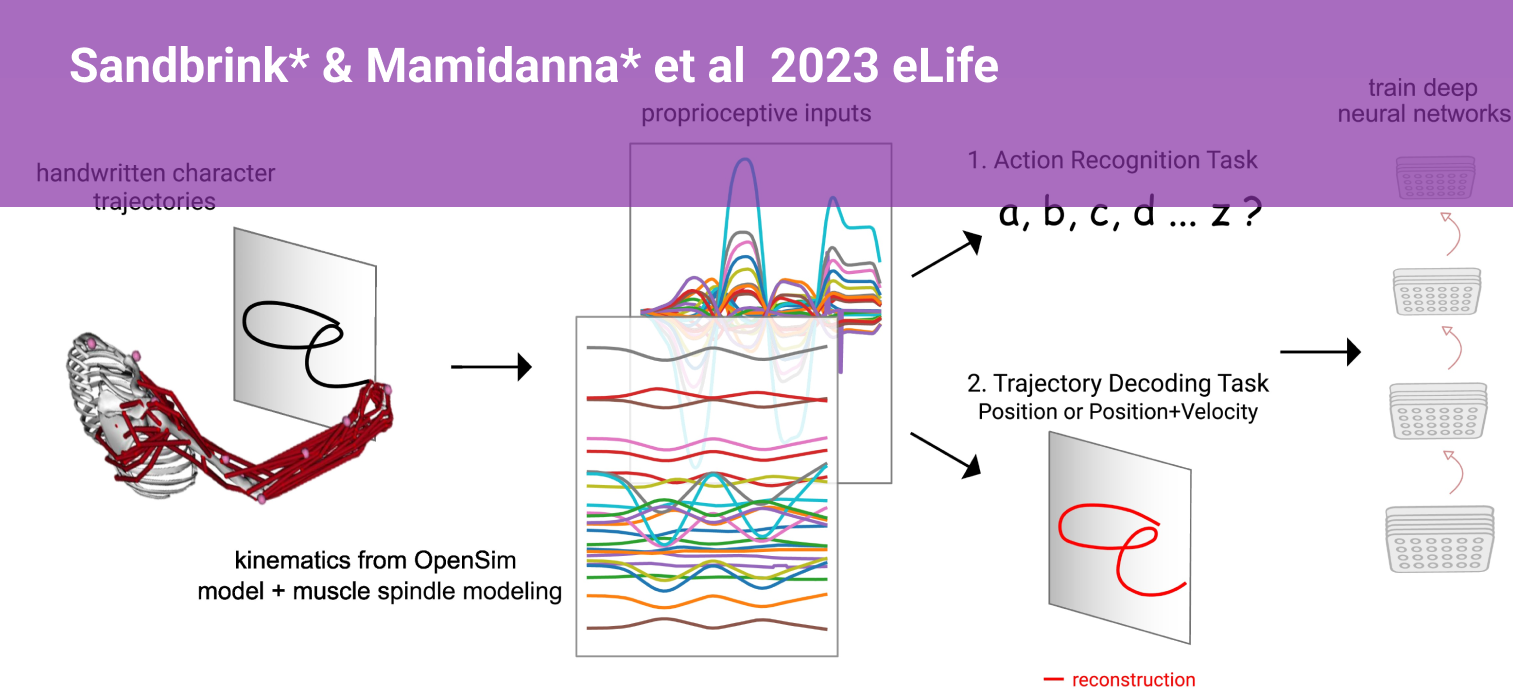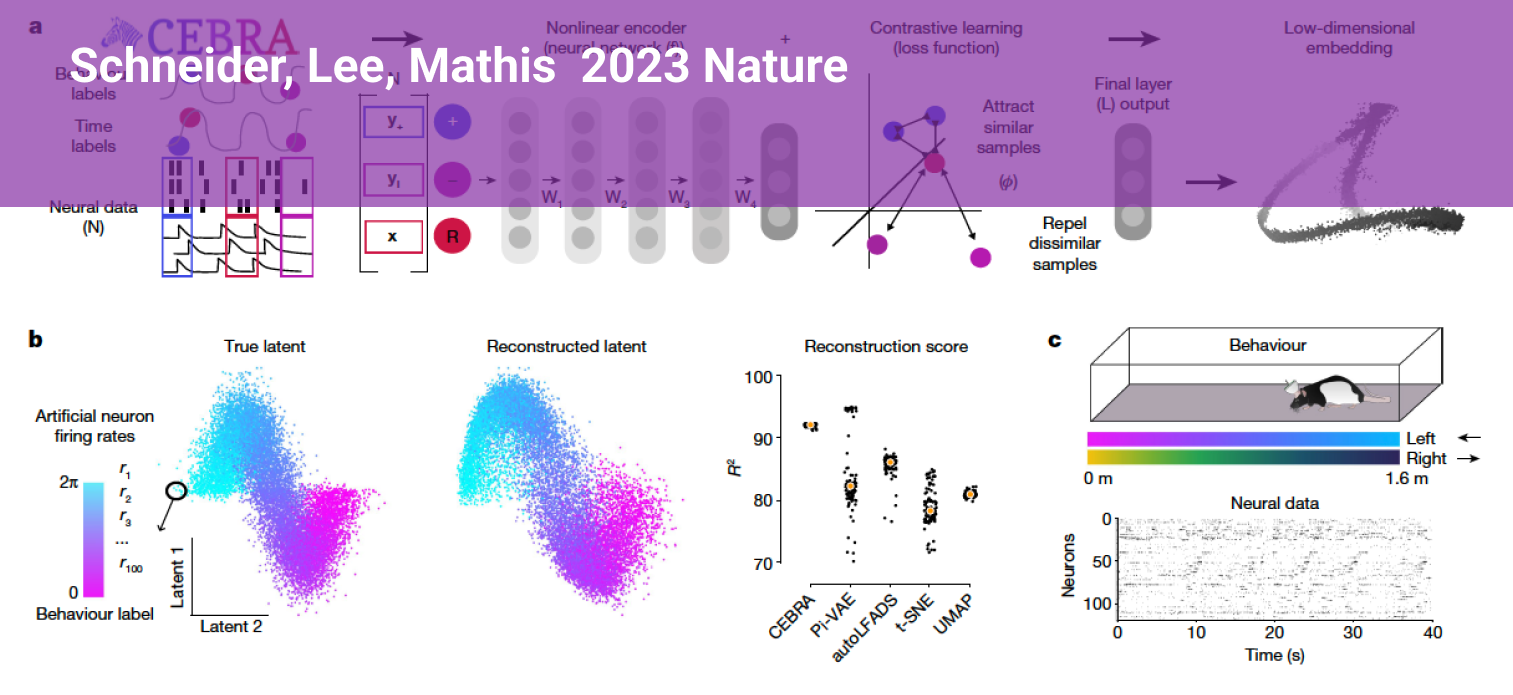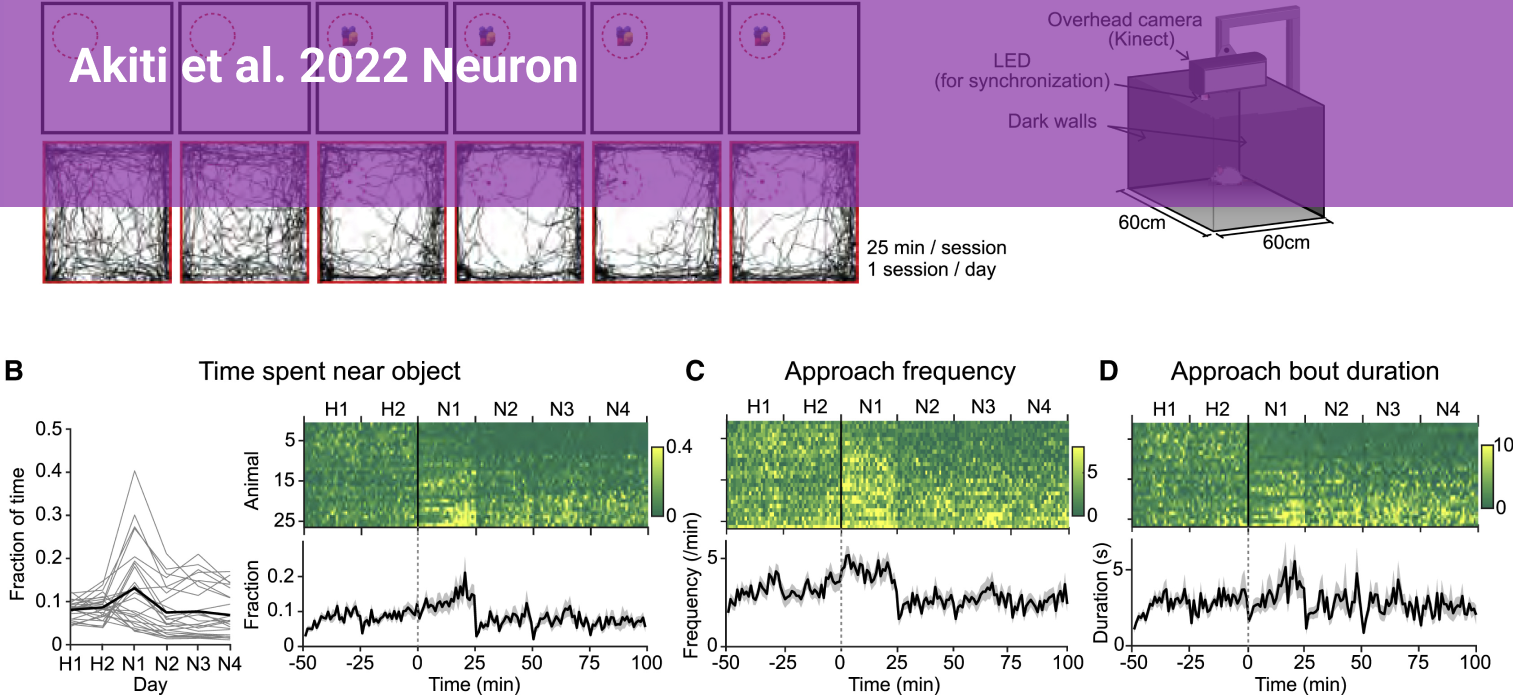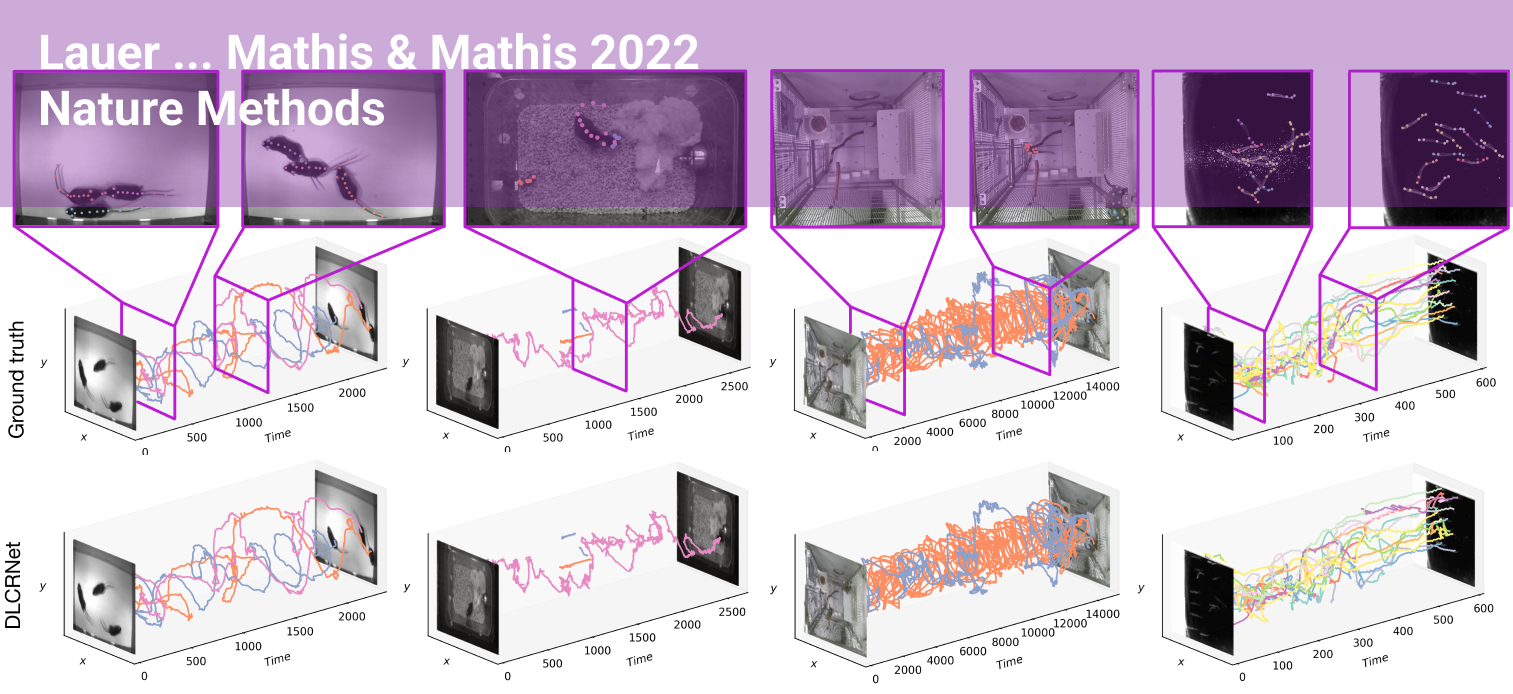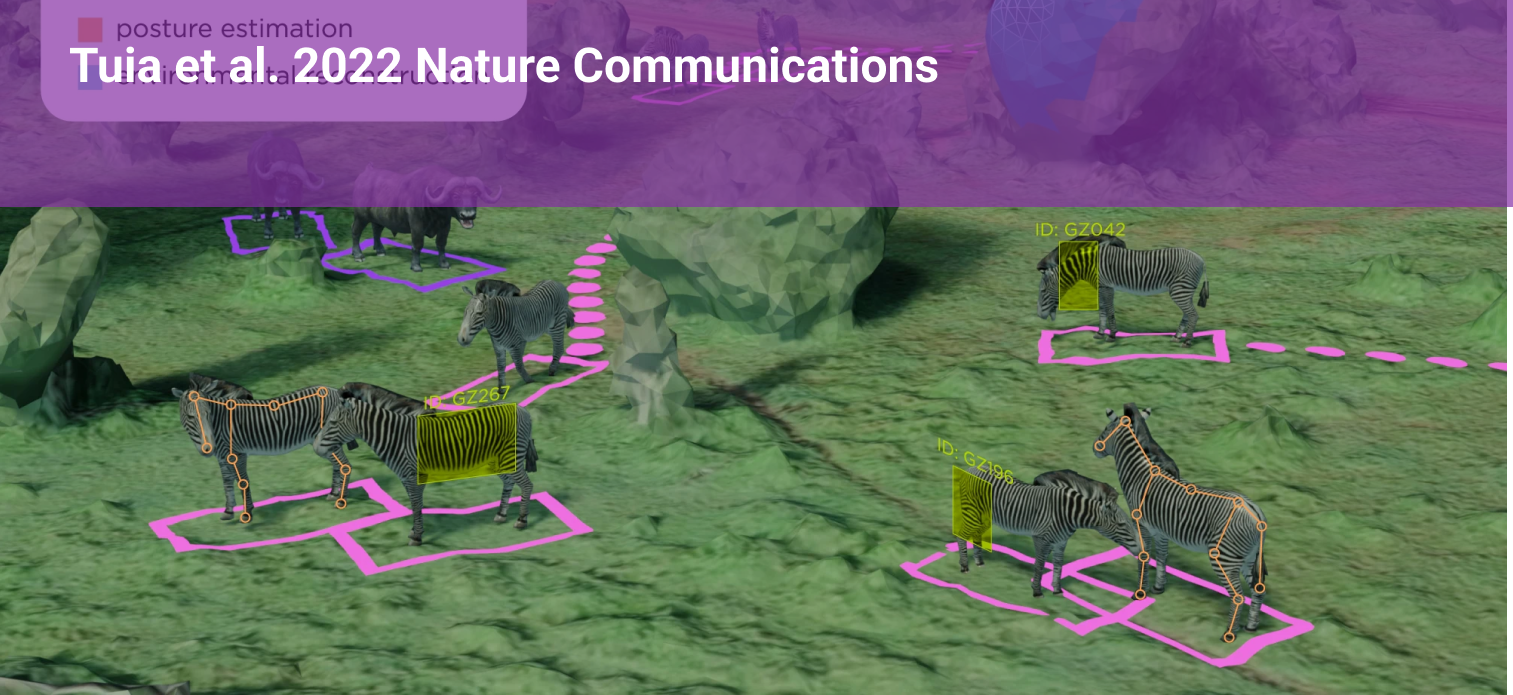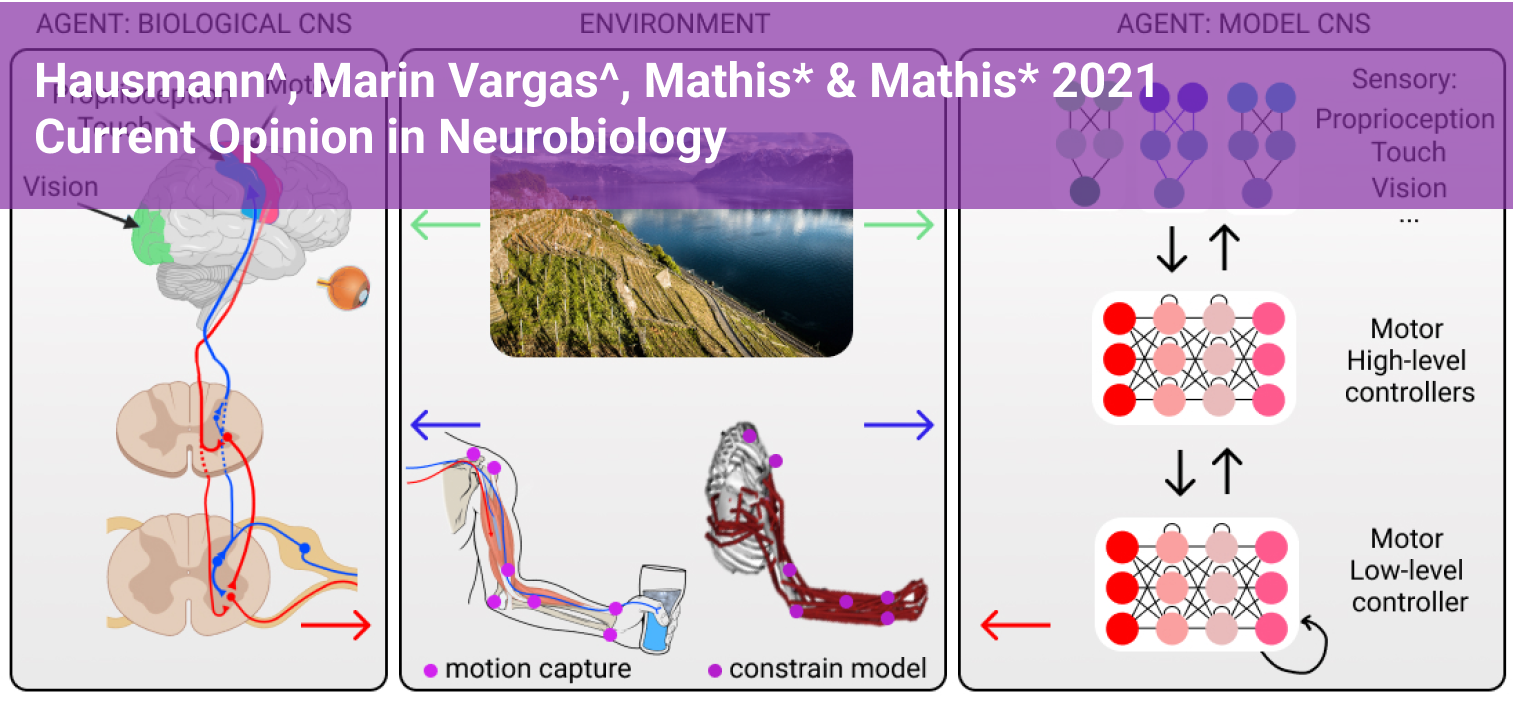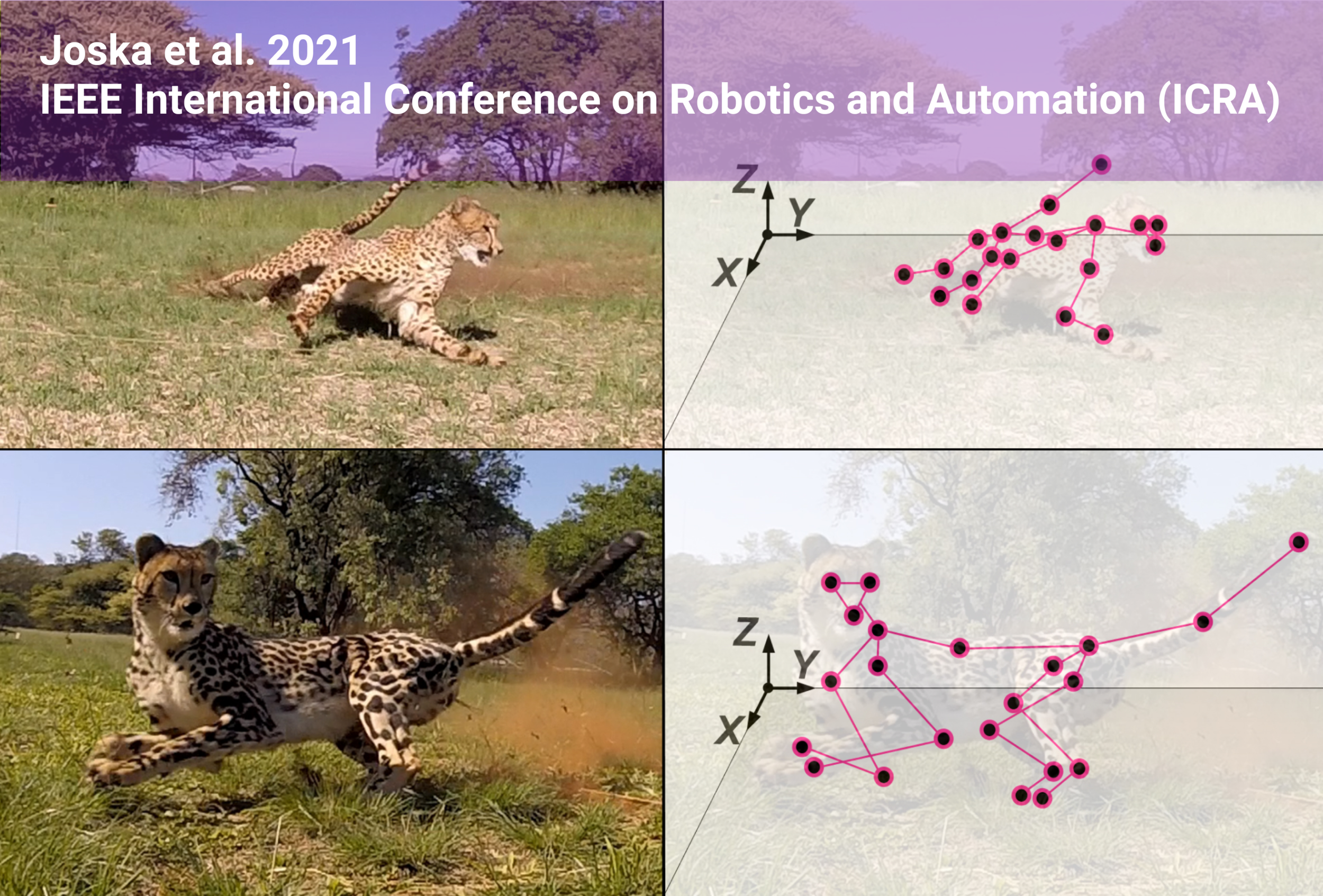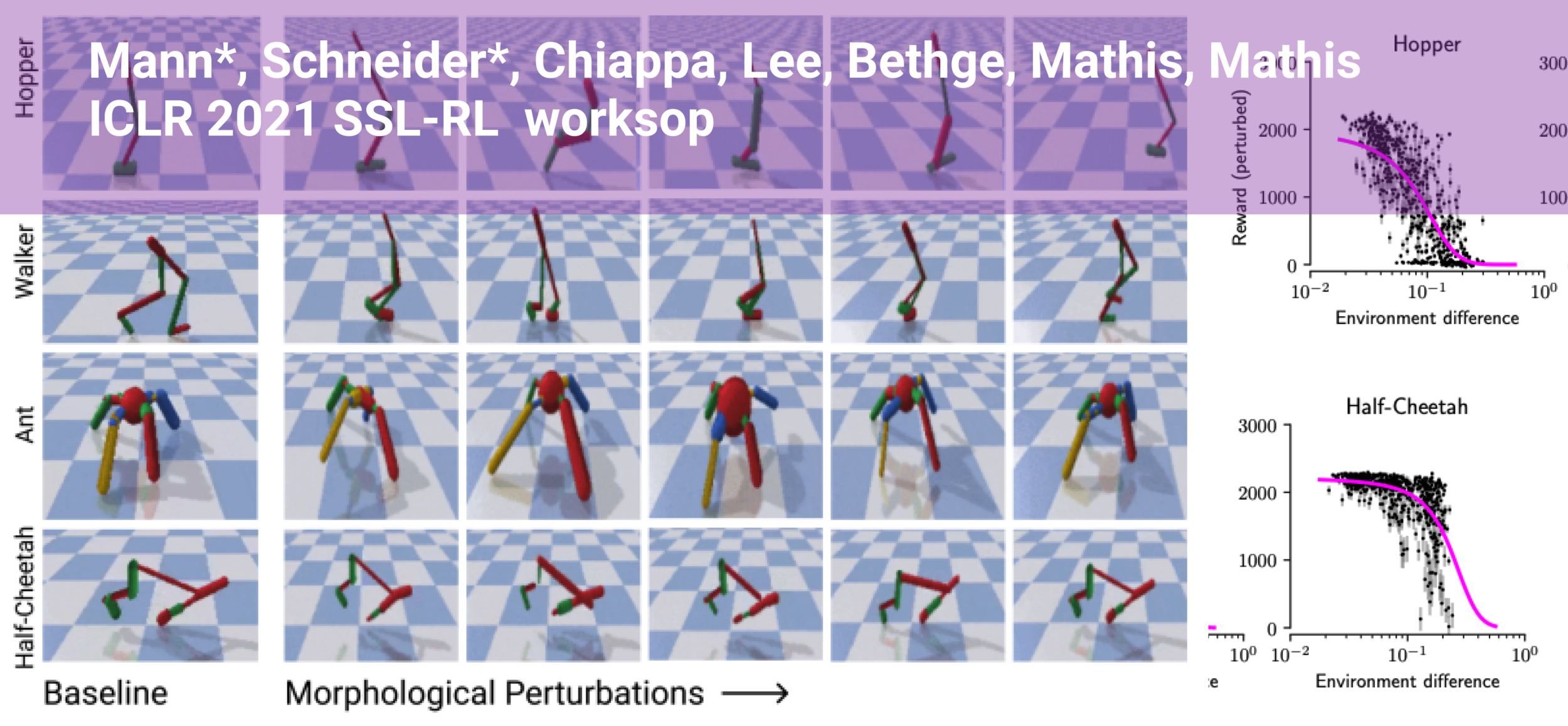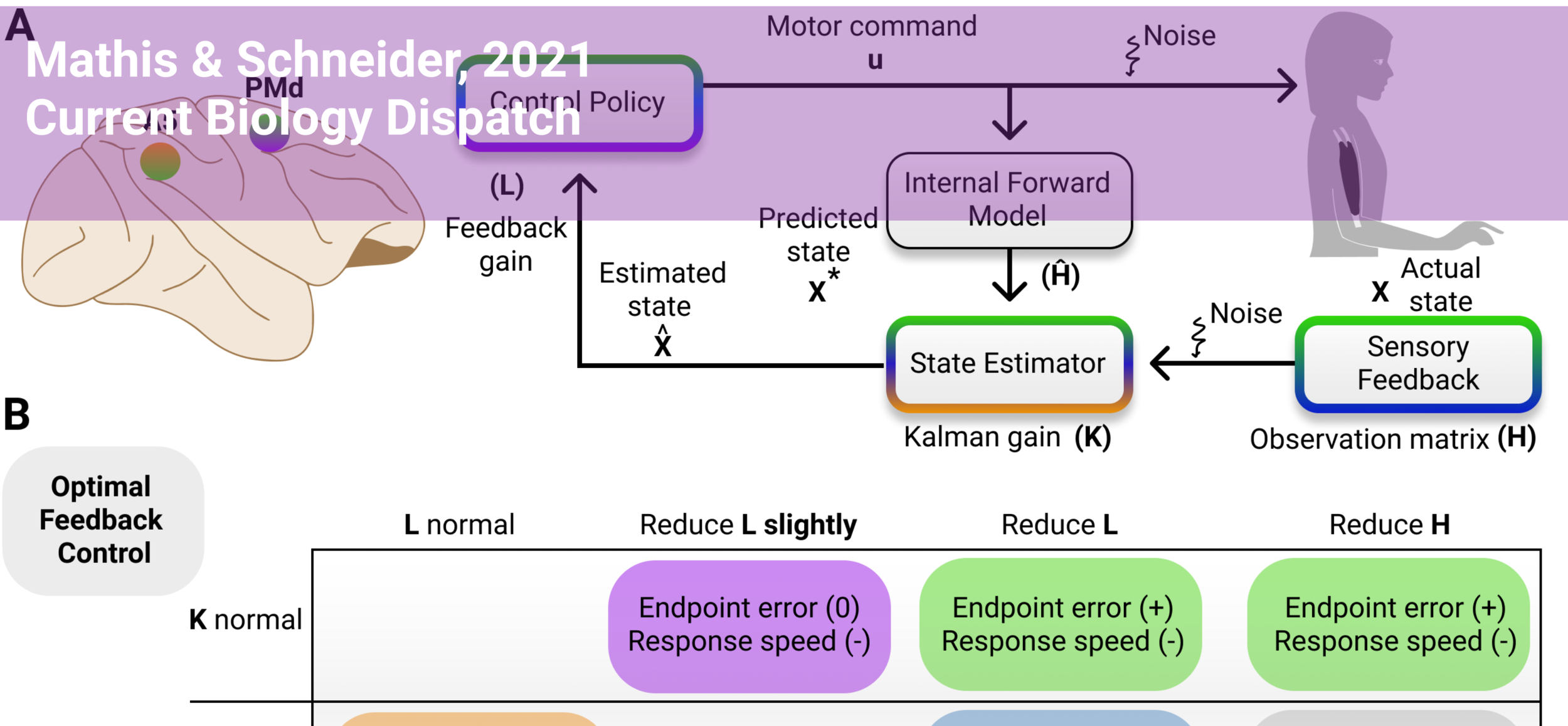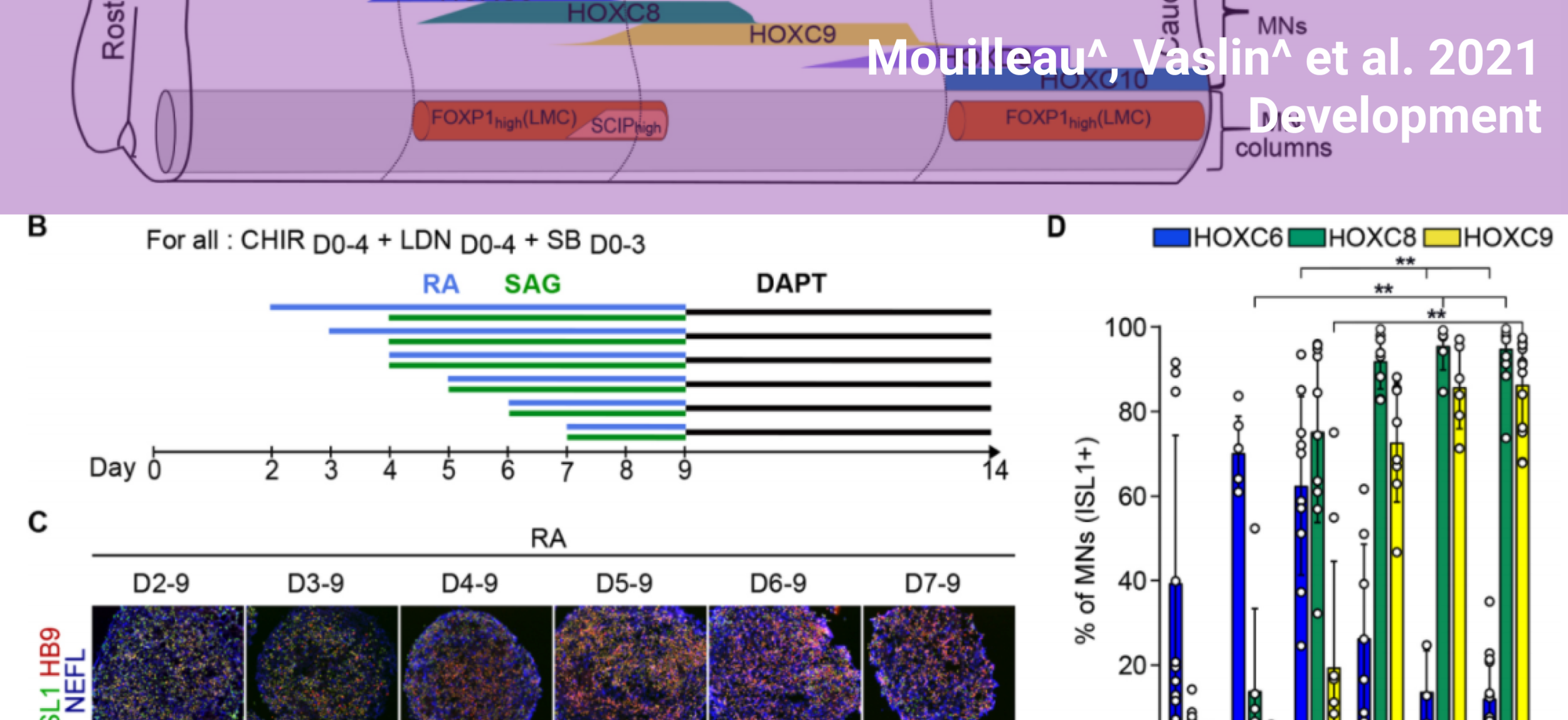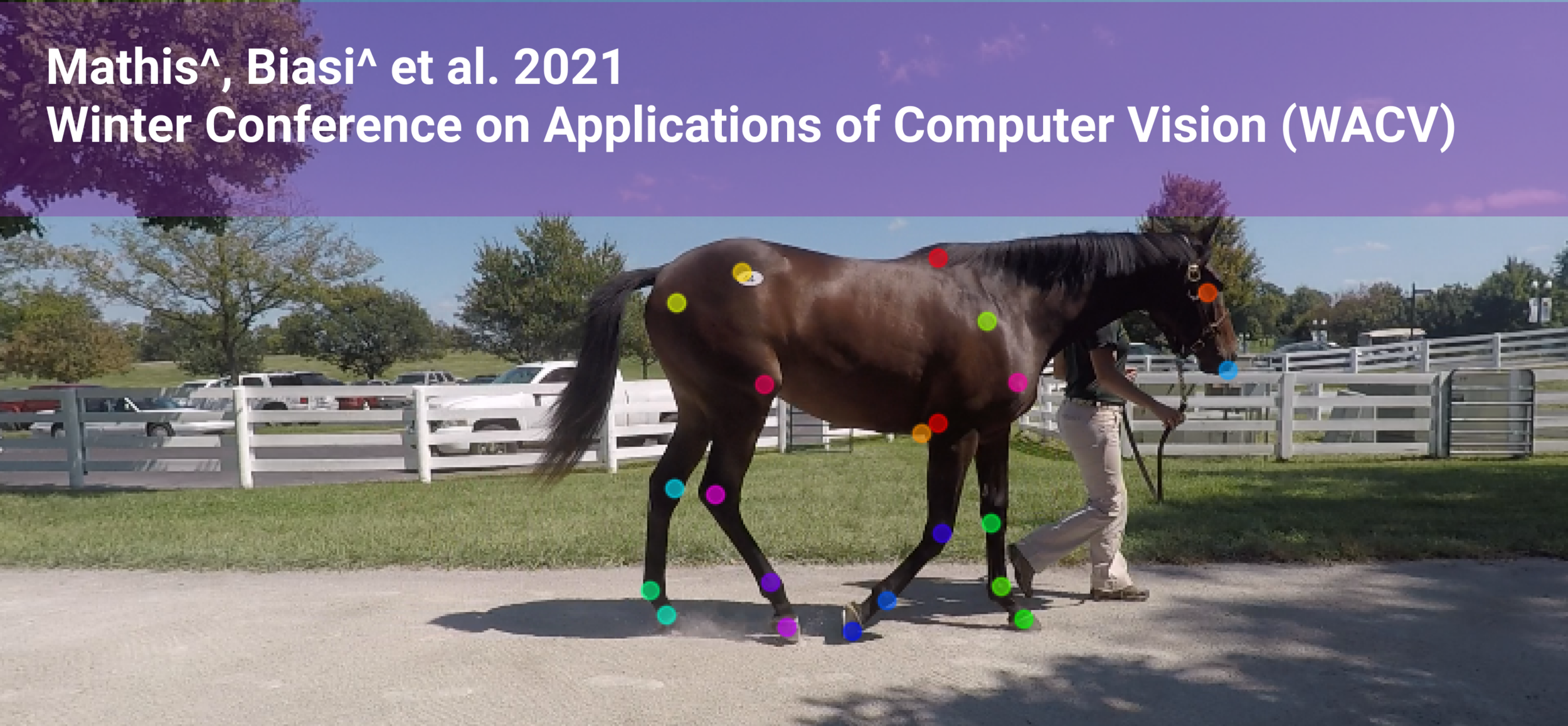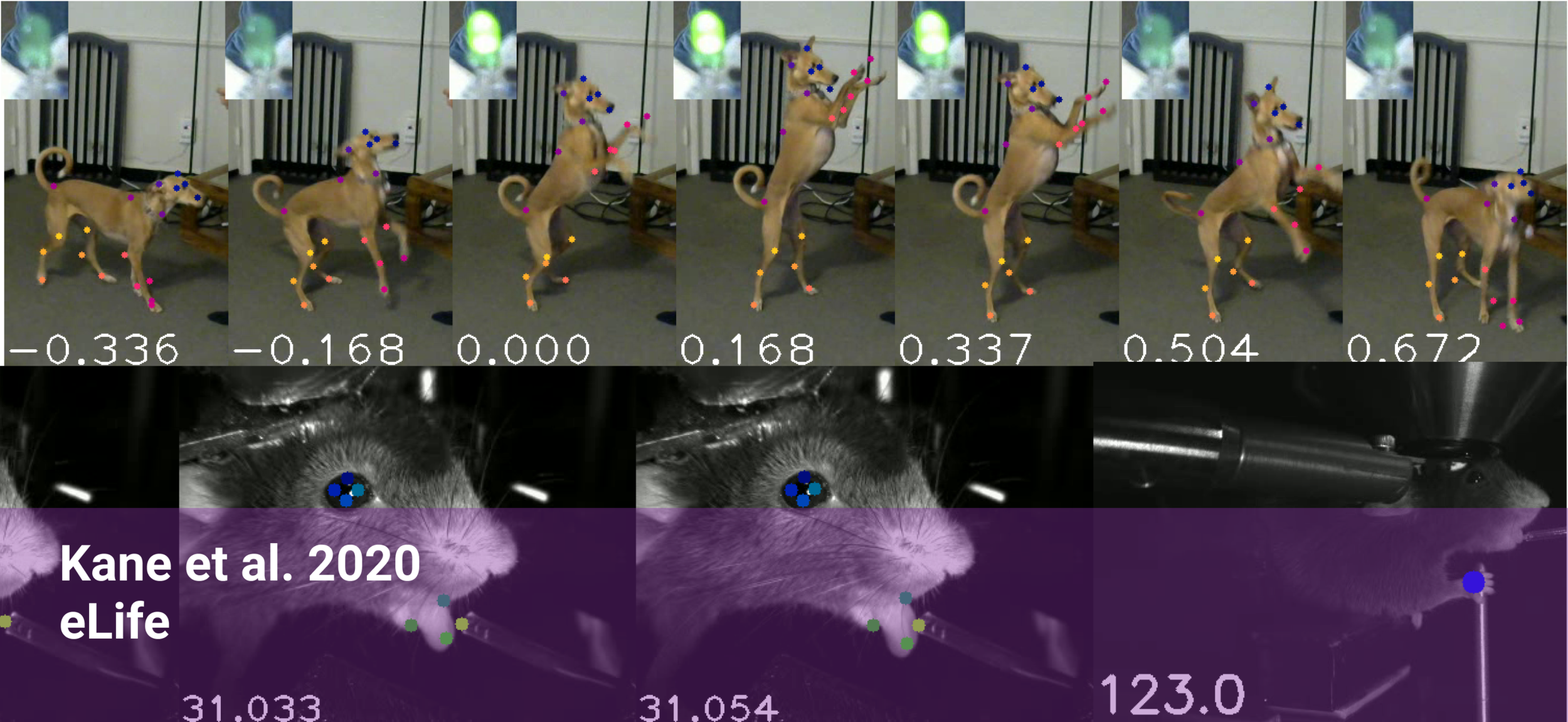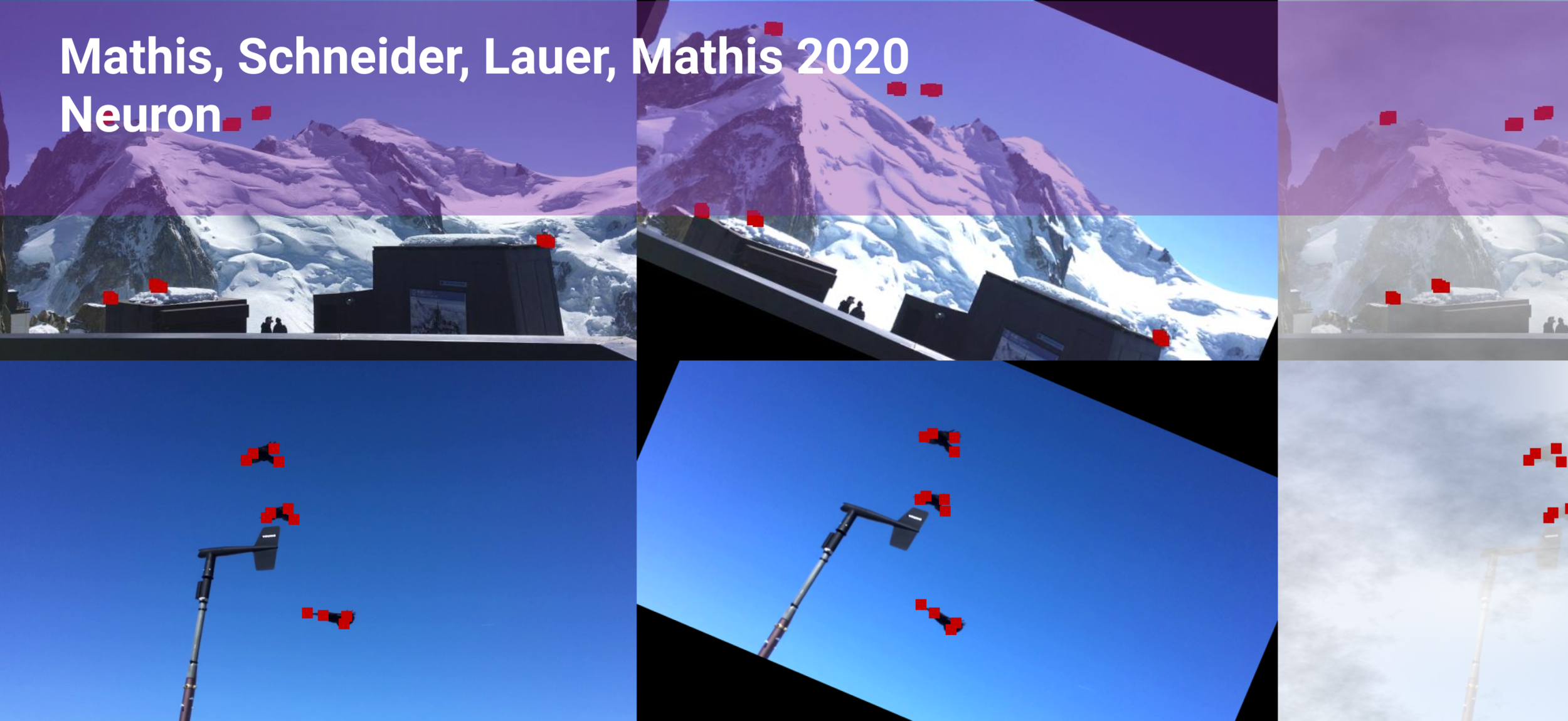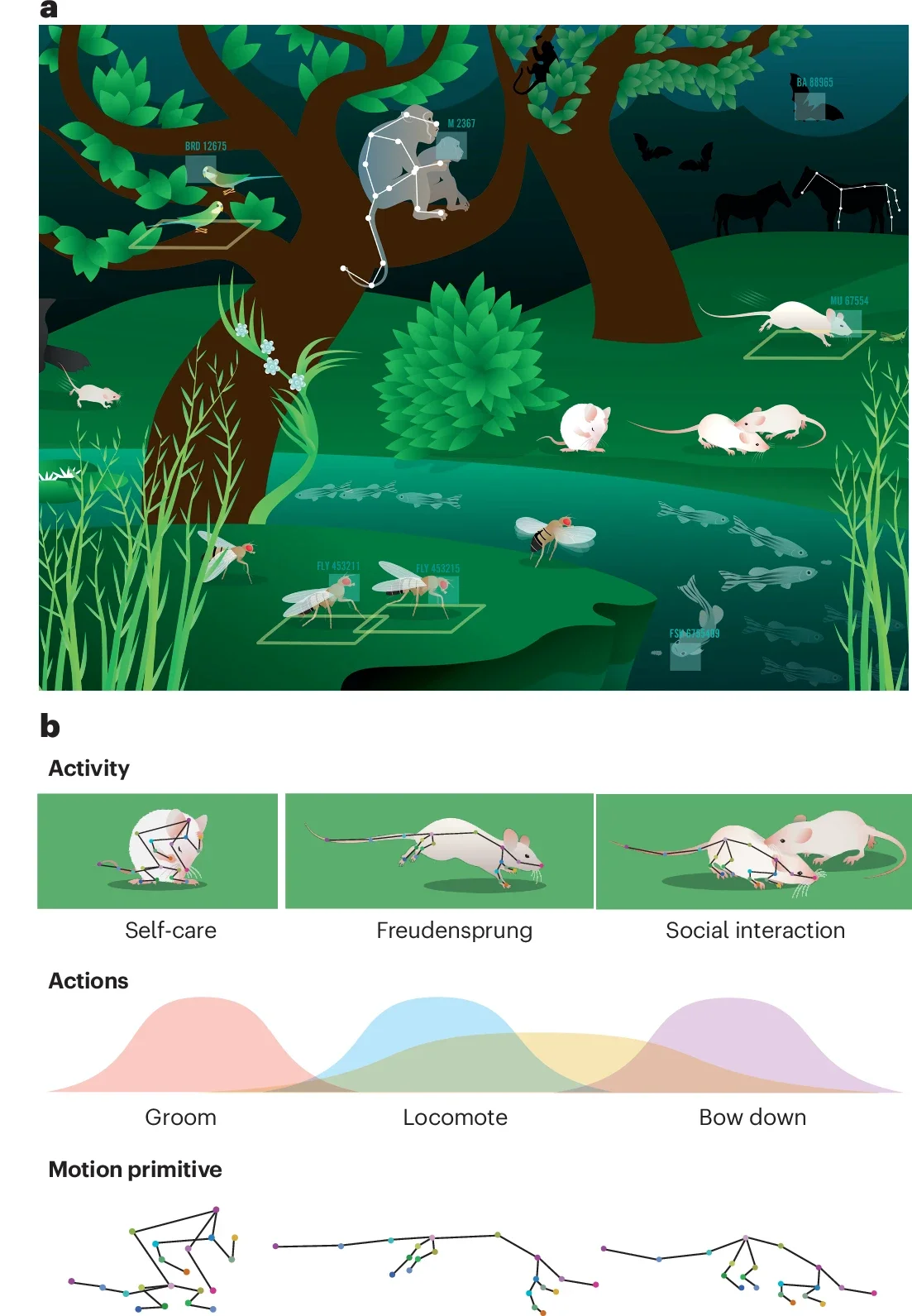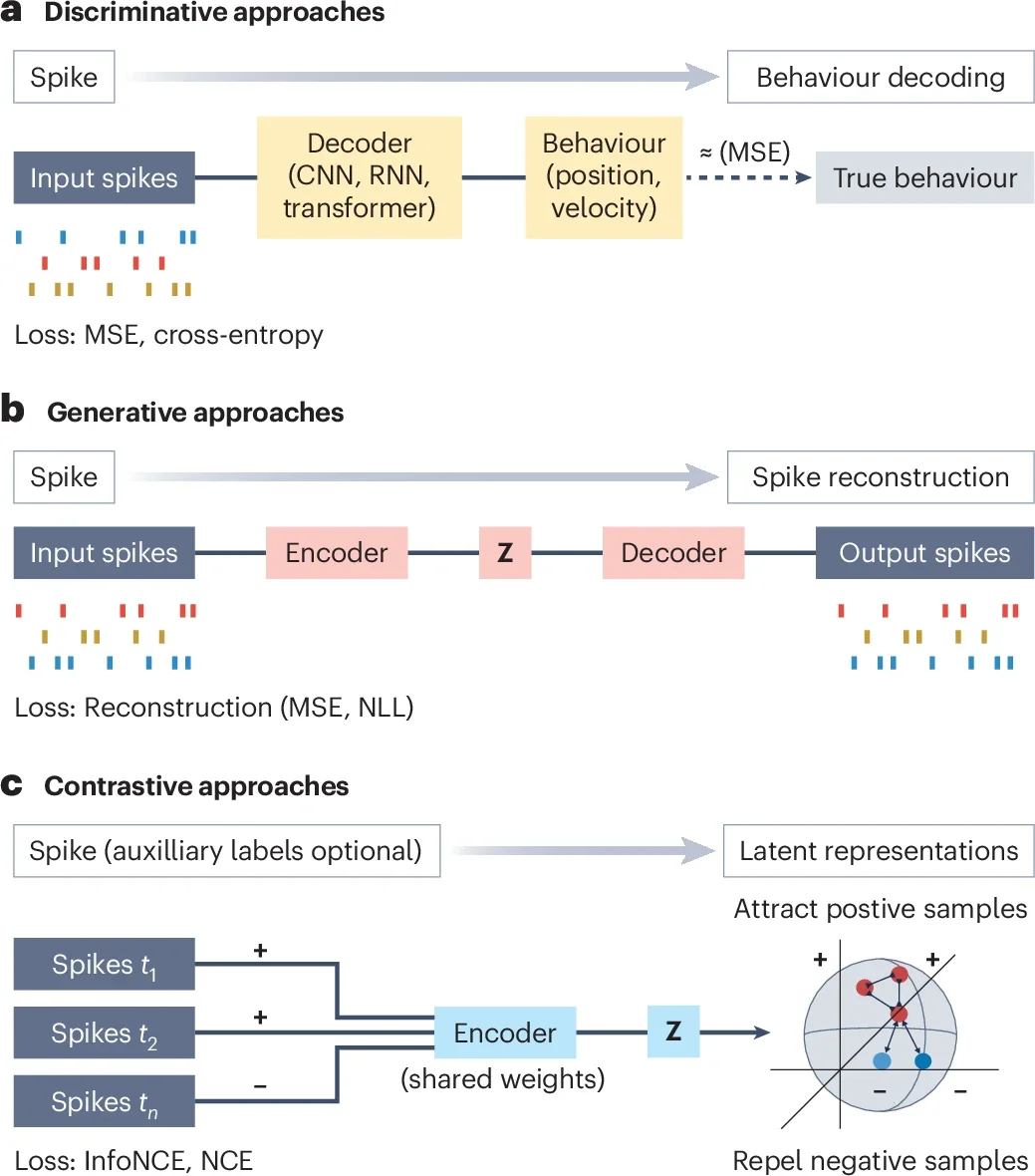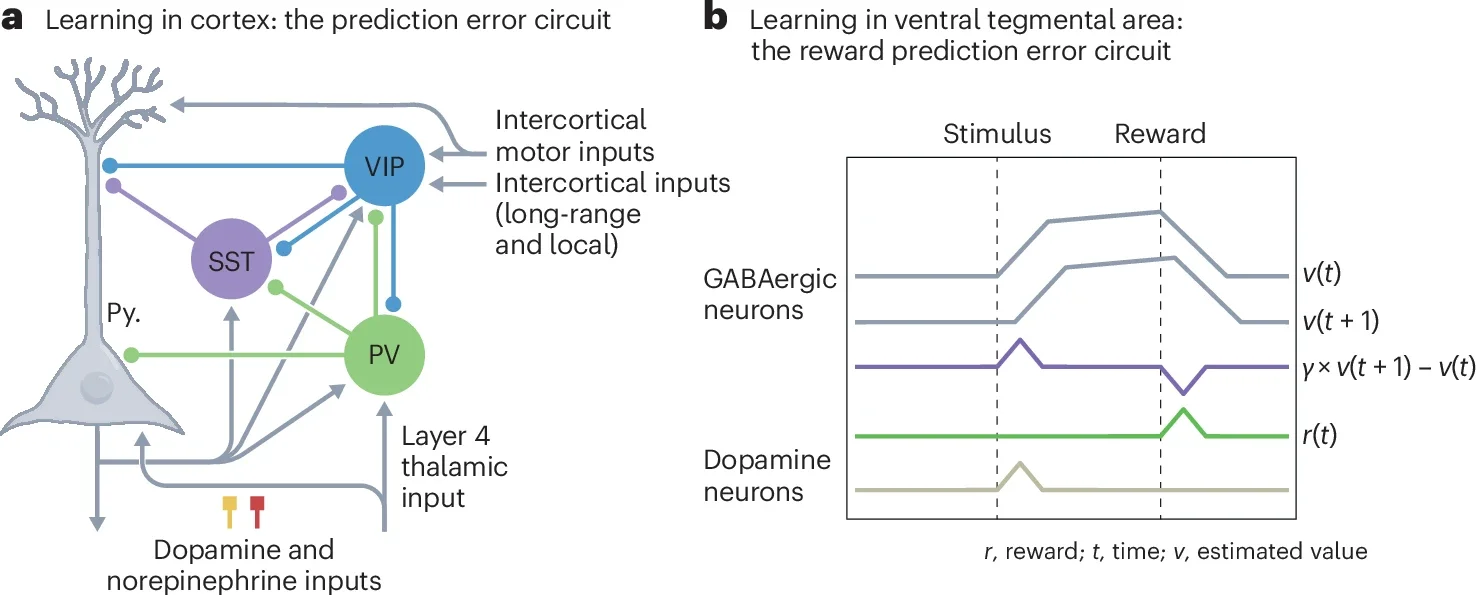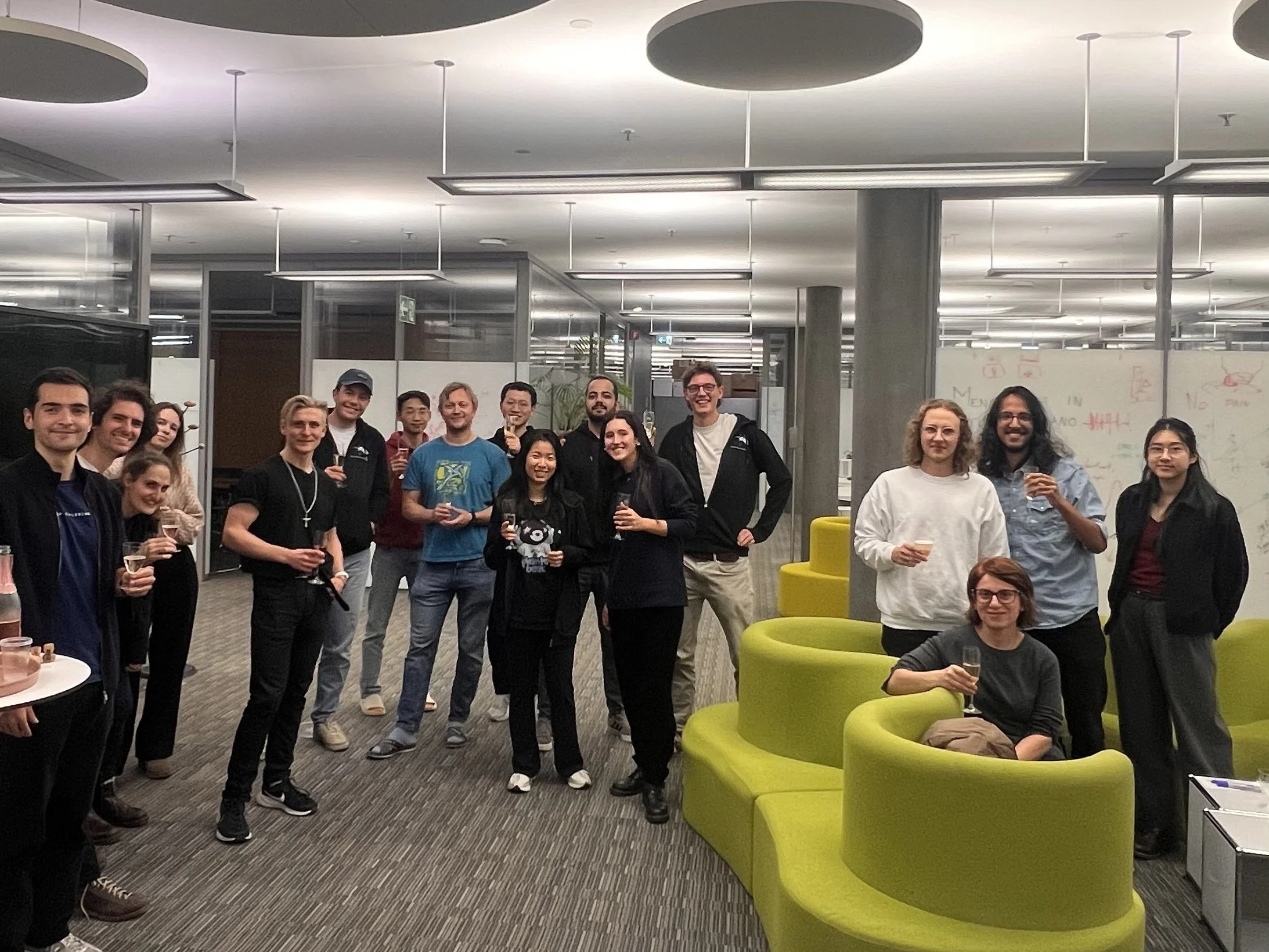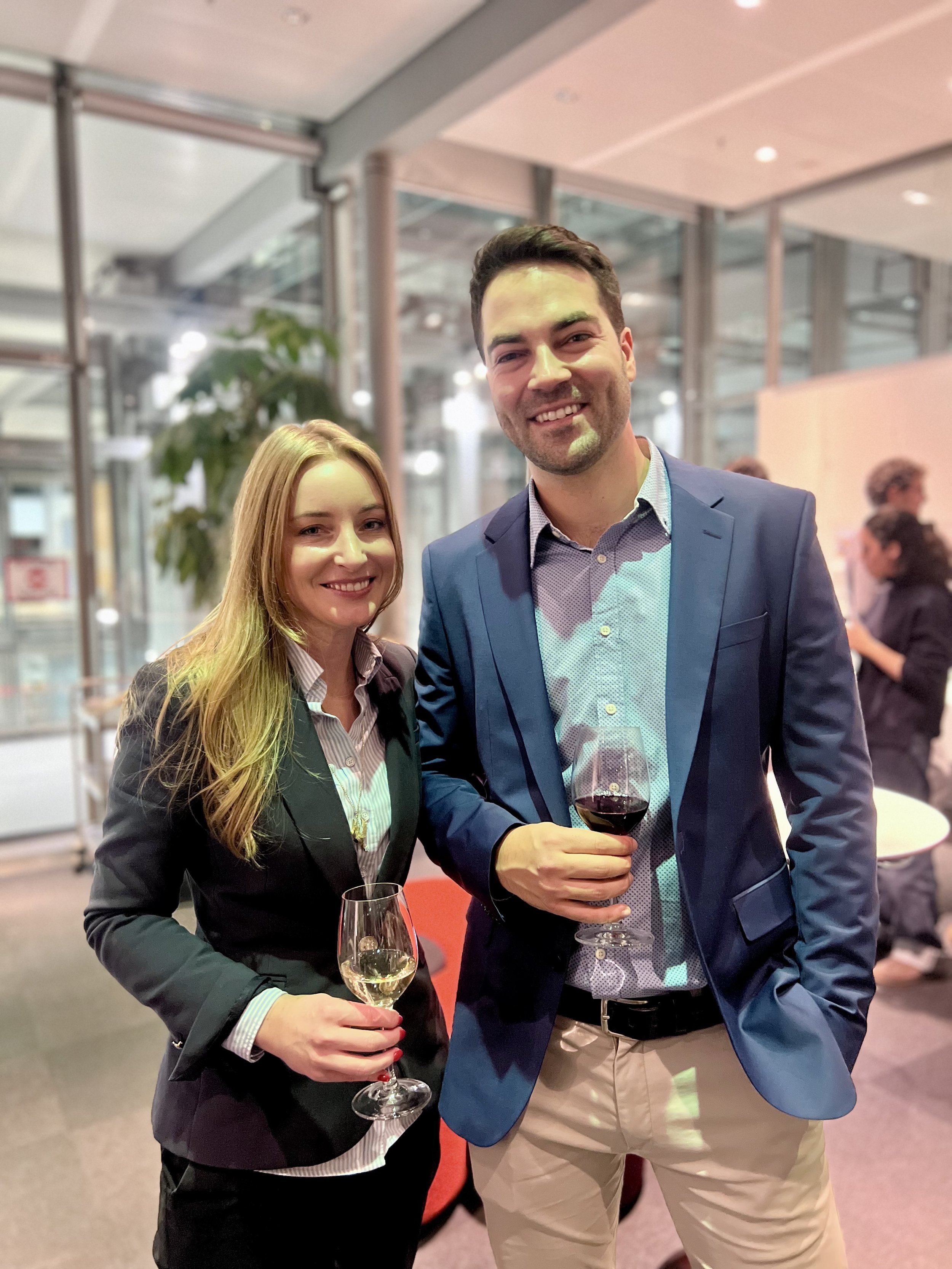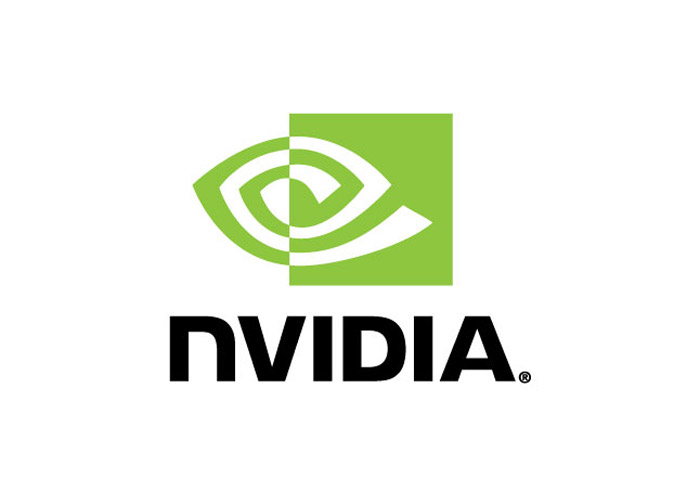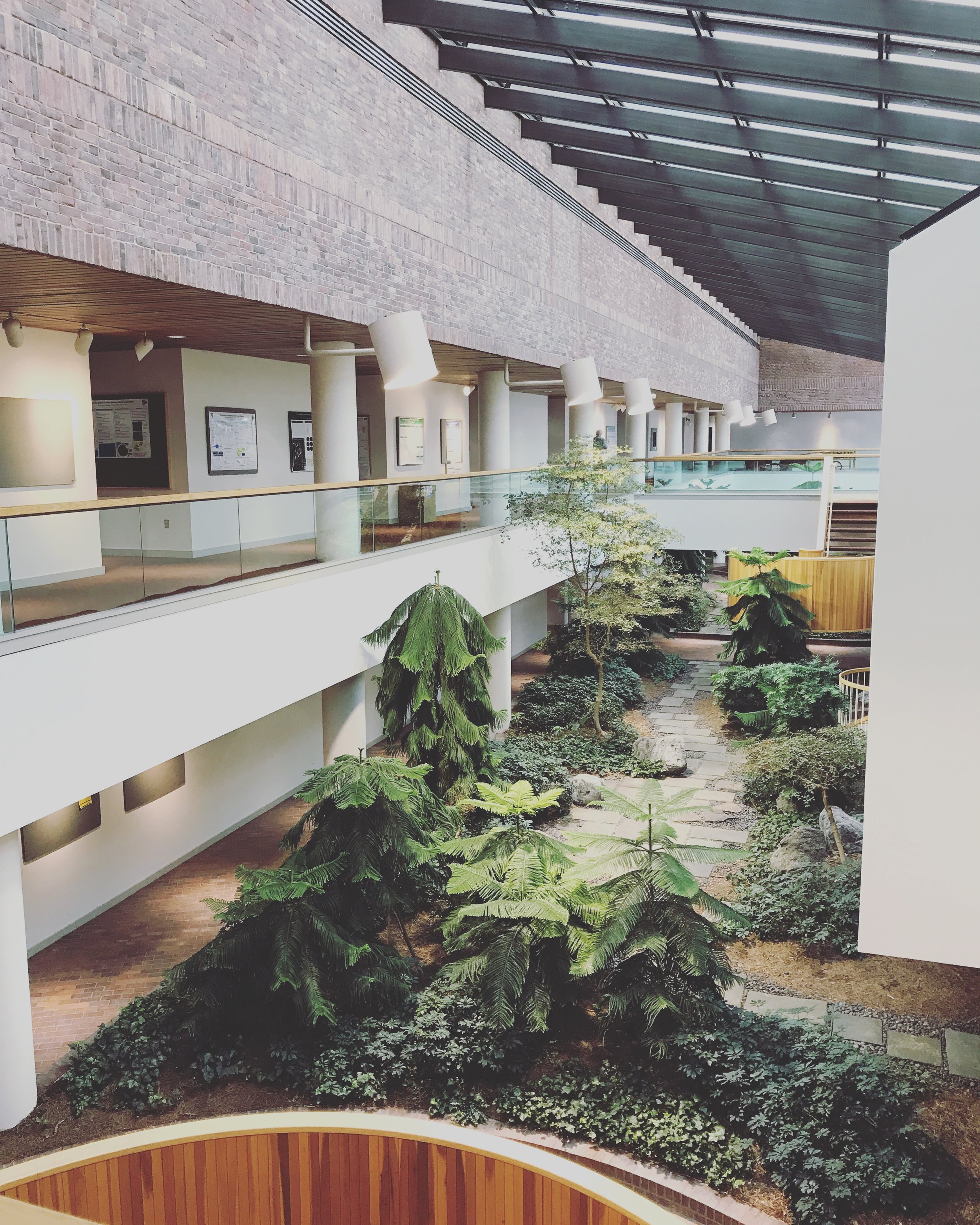Merging artificial intelligence & neuroscience
We are a team lead by Prof. Mackenzie Weygandt Mathis at the Swiss Federal Institute of Technology, Lausanne (EPFL). The lab revolves around two interactive areas: developing open source machine learning tools & uncovering neural dynamics during adaptive behaviors. Specifically, we design naturalistic and skilled sensorimotor assays for mice, perform large-scale neural recordings, and build tools to aid in our quest of finding internal models in the brain. Sensorimotor control mandates adaptability, and therefore we see it as the optimal system for better understanding intelligence.
Our world is always changing: how do our brains adapt? We aim to understand the mechanisms underlying adaptive sensorimotor behavior in intelligence systems, aka “adaptive intelligence”, and develop new machine learning methods that enable us to do so.
Our Tools:
Latest Research Output Highlights:
🧠🤖 Mackenzie’s perspective on Adaptive Intelligence is published in Nature Neuroscience! Read the paper
🖤 New Review in Nature Reviews Neuroscience on joint modeling of neural and behavioral data is out! Read the paper
🚀 New work on trustworthy ML is accepted to ICCV 2025! Read the paper
💍 Our work on robustness in ML systems is published at ICLR 2025! Read the paper
🦓 Our work on expanding CEBRA to allow for identifiable attribution maps is published at AISTATS 2025! Read the paper
📚 Our Perspective on Decoding the Brain is published in Cell! We also landed the cover! Read the paper
🦄 SuperAnimal is published in Nature Communications! Read the paper | read the news article
🦓 CEBRA is published in Nature! Read the paper | Read the Research Briefing
👯♂️BUCTD is published at ICCV! Read the paper | project website
🔮 AmadeusGPT is published at NeurIPS! Read the paper | project website
See more below!
“Es ist der Geist, der sich den Körper baut
(It is the mind itself which builds the body)”
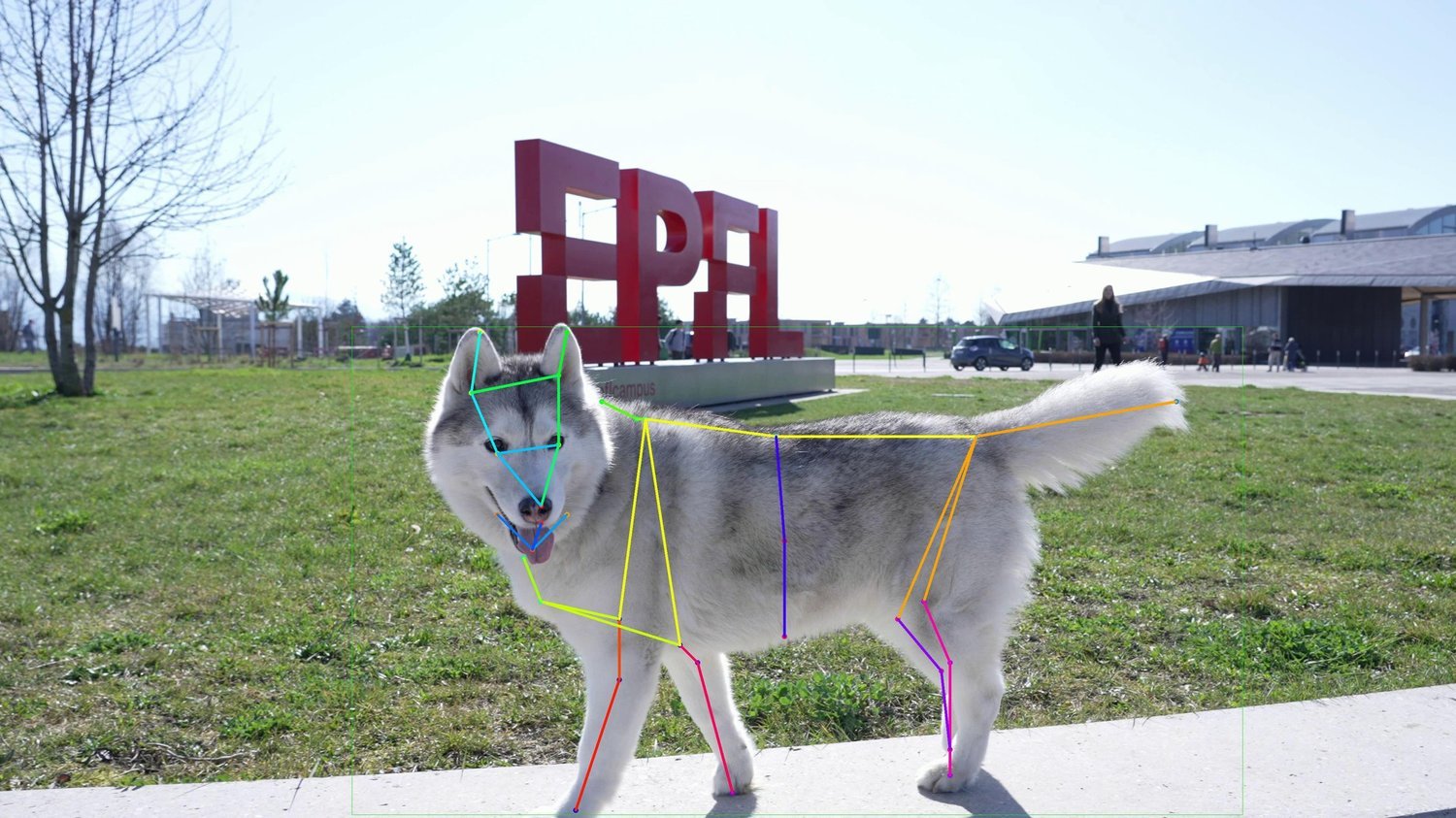
News
Winter/Spring 2026:
Mackenzie’s piece on leveraging neuroscience for building more adaptive AI was published in Nature Neuroscience!
Our review on joint modeling of neural and behavioral data is published in Nature Reviews Neuroscience!
Our software engineering team is growing: welcome to Jaap, Cyril, and Leonardo who support the SCENE collaboration and DeepLabCut!
Summer/Fall 2025:
Mackenzie is awarded the 2025 SGV Award 🏆 for her contributions for non-invasive animal tracking with DeepLabCut!
Ti Wang passed his candidacy exam! Xiaohang Yu passed her candidacy exam! Ananda Wolz passed her masters thesis! Sanders Meisen passed his masters thesis! Congratulations! 🎉
DISTIL is accepted to ICCV2025! Congrats to Hossein Mirzaei (PhD candidate), and awesome interns - Zeinab Taghavi, Sepehr Rezaee, Masoud Hadi, & Moein Madadi!
Congratulations to Hossein Mirzaeri for passing his candidacy exam!
Congratulations to PhD candidate Célia Benquet for being accepted to the EPFL PhD Excellence Program!
Our collaborative work analyzing the behavior of ants is published in Cell! Congrats to Anastasiia & Mackenzie
🦄 Shaokai Ye is officially a PhD 🎓! Check out his amazing work on animal behavior using LLMs and computer vision: AmadeusGPT, SuperAnimal, and LLaVAction. We wish him all the best for his next adventure at Apple 🍎!
Ruth Gutjahr & Artur Schneider join the lab as post docs!
Our preprint on sensorimotor neural dynamics and mouse arm biomechanics was updated on biorXiv, with new contributions from postdoc Paolo Muratore!
Winter/Spring 2025:
🔥 Our paper “Adversarially Robust Out-of-Distribution Detection Using Lyapunov-Stabilized Embeddings” #AROS 💍 was accepted to ICLR 2025 - congratulations to Hossein & Mackenzie!
Additional congrats to Hossein on his other ICLR 2025 acceptance on COBRA 🐍!
🦓 Our paper “Time-series attribution maps with regularized contrastive learning” was accepted to AISTATS 2025 - congrats to Steffen, Rodrigo, Anastasiia, Markus, and Mackenzie!
The lab was awarded an SNSF Starting Grant for 1.5M CHF! This funding supports our quest to understand the neural latent dynamics underlying visuomotor learning.
Sebastien Hausmann is officially a PhD 🎓! Many congratulations Seb!
Hossein’s paper on A Contrastive Teacher-Student Framework for Novelty Detection under Style Shifts is preprinted!
Paolo Muratore joins the lab as a postdoc!
The Swiss Society for Neuroscience awarded the CEBRA a best paper award! Congratulations to Dr. Steffen Schneider who accepted the award!
Mackenzie was co-awarded the Robert Bing Prize from the Swiss Academy of Medical Sciences! The Robert Bing Prize 2024 has been awarded jointly to Prof. Alexander Mathis and Prof. Mackenzie W. Mathis (EPFL) for their pioneering work bridging machine learninig and behavioral neuroscience, and to Prof. Susanne Wegener (University Hospital Zurich/University of Zurich) for her translational research on the pathophysiology and treatment of stroke.
Summer/Fall 2024:
Mackenzie W. Mathis was awarded the Swiss Science Prize Latsis 2024; The Swiss Science Prize Latsis has been awarded every year since 1984 by the SNSF on behalf of the Fondation Latsis Internationale, a non-profit public benefit foundation established in 1975 and headquartered in Geneva. This prize is one of the most prestigious Swiss awards in science. Read more here & 🎥 Check out the video!
Hossein Mirzaeri, Ti Wang, and Xiohang Yu join the lab as PhD students!
The Kavli Foundation now supports DeepLabCut and AmadeusGPT through the CZI EOSS Program! Read more here!
The Swiss National Science Foundation Awards Prof. Alexander and Mackenzie Mathis a joint 1.2M CHF Project Grant!
CellSeg3D was preprinted & reviewed at eLife! This is a new self-supervised segmentation method primarily for mesoSPIM data. We built this to directly work on cleared brain tissue, but it can be used on other samples. Congrats to the first author, Cyril, who has led this project as a Bachelor’s and Master’s student! 🔥
Mackenzie Mathis and Alexander Mathis gave the FENS 2024 Kandel Prize Lecture in Vienna! 🇦🇹
Winter/Spring 2024:
🔥🦄 SuperAnimal was accepted in Nature Communications! Stay tuned for more information on this exciting project building foundation models for pose to support animal behavioral analysis - huge congrats to first author Shaokai Ye! The companion paper was also published in Nature Methods!
Congratulations to Célia Benquet for becoming a PhD candidate!
Frontiers of Science Award 2023 for DeepLabCut
Summer/Fall 2023:
AmadeusGPT🪄 was accepted to NeurIPS2023! Congratulations to lab members Shaokai Ye, Jessy Lauer and Mackenzie!
Mackenzie was awarded the 2023/24 Eric Kandel Young Neuroscientists Prize alongside Alexander Mathis! They will give the prize lecture and receive their award at FENS in 2024. This news was covered in The Süddeutsche Zeitung!
The original DeepLabCut paper was awarded the Frontiers of Science Award 2023 for Theoretical Computer and Information Sciences
ELLIS PhD Student Steffen Schneider will start his own research group at Helmholtz AI in the spring of 2024! 🎉 We could not be more proud of him!
Collaborative work on crowded scene pose estimation with the A. Mathis Group was accepted to ICCV 2023!
Our first work on using biomechanical models to study proprioception was published at eLife! Congrats to co-first authors Kai and Pranav, both former masters students.
Célia Benquet joins the lab as a PhD Student!
Winter/Spring 2023:
May: New paper out in Nature with PhD student Steffen Schneider and Masters student Jin Lee! Go #CEBRA! 🦓 -> see cebra.ai for more details, and for News coverage in over 40 outlets see here!
SuperAnimal models are released in DeepLabCut and a new paper lead by PhD student Shaokai Ye is up on arxiv!
New paper review piece out in Cell with Postdoc Thomas Sainsbury, and Dispatch out in Current Biology with Postdoc Markus Frey! Congrats!
The current CEBRA dev team (Steffen, Mackenzie, Celia, Anastasiia) gave the first two workshops on using CEBRA, and the paper is accepted! Stay tuned!
Summer/Fall 2022:
Mackenzie was appointed as a Vallee Foundation Scholar - this generous funding lets us build our team for creating new behavioral analysis tools.
multi-animal DeepLabCut, lead by postdoc Jessy Lauer, was featured in Nature! Read more: https://www.nature.com/articles/d41586-022-02964-6
Winter/Spring 2022:
Funding from the Radala Foundation for ALS research awarded with Schneider and Courtine Labs!
Our call to action in Nature Communications on using ML for wildlife conservation is published!
We thank CZI for generously funding work on developing a napari plug in system for DeepLabCut!
Mutli-animal DeepLabCut was published in Nature Methods! Congratulations Jessy Lauer!
Summer/Fall 2021:
Congratulations to Steffen Schneider, who was awarded a prestigious 2021 Google PhD Fellowship in Computational Neuroscience and algorithmic fairness! We thank Google AI for this funding!
Congratulations to Shaokai Ye for becoming a PhD candidate!
Two CVPR CV4Animals papers were accepted/presented! Congrats to Shaokai Ye, Steffen Schneider, Jessy Lauer, Tian Qiu and our collaborators for this! Our new preprint on multi-animal DLC is up! Also, you can watch the keynote talk from Mackenzie here!
Grant funded from Novartis, thank you for supporting our work on the EPFL MausHaus!
Big congratulations to Sebastien Hausmann for passing his candidacy exam!
Mackenzie was awarded the FENS EJN 2022 Young Investigator Prize
Winter/Spring 2021:
Paper accepted to ICML-Workshop on Self-supervision for Reinforcement Learning (SSL-RL)! Download the paper under “publications”! Congrats to Steffen Schneider and Jin Lee and our collaborators!
Our Dispatch on Motor Control at Current Biology is published, congrats to Steffen Schneider!
Grant funded from SNSF, thank you for supporting our work on forelimb motor adaptation!
💥 Alumni Thomas Biasi’s first author paper was published at WACV 2021, which includes an exciting new benchmark from Steffen Schneider (see publications for link and a short talk), plus Thomas landed an internship at Amazon (and welcome back to academia to Steffen, after his Amazon position)!
Alumni Mert Yüksekgönül got accepted into multiple top CS programs in the US/Europe, and will be going to Stanford for his PhD!🌲
Valentin Bruttin graduated with top marks from EPFL!
Our collaborative work with Amir Patel’s group on 3D cheetah modeling is accepted to ICRA 2021 (the #1 robotics conference!), and released on arXiv!
Fall/Winter 2020:
Our paper on real-time, low latency tracking of behavior was published in eLife! Congrats to alumni, Gary Kane, and collaborators! It was also covered in the press (online & radio here).
Our paper A primer on Motion Capture with Deep Learning appeared in Neuron, authored by Alexander Mathis, Steffen Schneider, Jessy Lauer and Mackenzie Mathis! (with a lovely cover highlighting, in part, pose estimation)➡️
Congratulations to alumni Thomas Biasi on his Winter Conference on Applications of Computer Vision (WACV) 2021 paper acceptance with us! More details coming soon! Congratulations to Steffen on his NeurIPS 2020 Workshop paper acceptance!
🔥 Summer 2020:
The laboratory moved to The Swiss Federal Institute of Technology, Lausanne (EPFL)! We are at Campus Biotech in Geneva. We continue to integrate motor learning, artificial intelligence, & neurological disease-focused research with the generous support of the Bertarelli Foundation. Prof. Mackenzie Mathis was appointed as the Bertarelli Foundation Chair of Integrative Neuroscience.
Our short-form paper on robustness in animal pose estimation was accepted to ICML 2020 Uncertainty & Robustness in Deep Learning Workshop!
Congratulations to Daniel Soberanes who graduate from Harvard College!
Congratulations to Kai Sandbrink, who graduated from ETH-Zurich, and his first author work is now on BioRxiv! We wish you all the best in your coming adventures! Thomas Biasi was awarded the Herschel-Smith Fellowship to work on robust pose estimation with Alexander Mathis!
Winter/Spring 2020:
We held the second DeepLabCut workshop, and the first Hack-a-thon!!! We also attended the CZI EOSS meeting.
Summer/Fall 2019:
The Chan Zuckerberg Initiative awarded us a grant to support DeepLabCut!
Nature covers work in our lab in two articles: DeepLabCut and how we use 2P-imaging during motor adaptation!
Bloomberg Businessweek Magazine covered work in our lab!
DeepLabCut 2.0 is published in Nature Protocols! Congratulations to Tanmay, Alex, Mackenzie & co-authors. Full python package, GUIs, 3D tools and more: https://www.nature.com/articles/s41596-019-0176-0 Plus, our team got the cover! ➡️ “A running cheetah with DeepLabCut Image of a cheetah ‘in the wild’ with markerless tracking of user-defined parts made with DeepLabCut, an open-source toolbox for deep-learning-based animal-pose estimation provided by Nath et al.”
Fall/Winter 2018:
We hosted the first DeepLabCut workshop in Jan 2019! Scientists from across the US, CAN & UK joined us for a hands-on tutorial on how to use the deep learning toolbox.
Nov 2018: A new preprint on using DeepLabCut is posted on bioRxiv! Our work on extensions to DeepLabCut was accepted to Cosyne 2019, and Alex’s Team presentation on “deep learning in motor neuroscience” is accepted to NCM 2019!
Sept 2018: Adrian receives his master’s degree! Congrats, Adrian! We wish you the best in Zurich!
August 2018: Our work on building the DeepLabCut toolbox, a deep learning method to perform markerless pose estimation was published in Nature Neuroscience!: rdcu.be/4Rep
NVIDIA Developer Blog highlights DeepLabCut! https://news.developer.nvidia.com/ai-enables-markerless-animal-tracking/
July 2018: Our preprint on DeepLabCut was covered by The Atlantic! We are very happy that Ed Young was able to talk to some of the earlier adopters of DeepLabCut as well. For more information, see our page on DeepLabCut.
June 2018: Our first paper from the lab is accepted! Stay tuned!
April 2018: Our first preprint from the lab, in collaboration with Matthias Bethge, is up on arXiv (check out our abstract page)!
Feb 2018: Congratulations to Melody Tong on completing her senior thesis!
Fall 2017:
NVIDIA GPU Grant awarded to the lab! We thank NVIDIA Corporation for supporting our research.
September 1st, 2017: The lab doors are open at Harvard!

